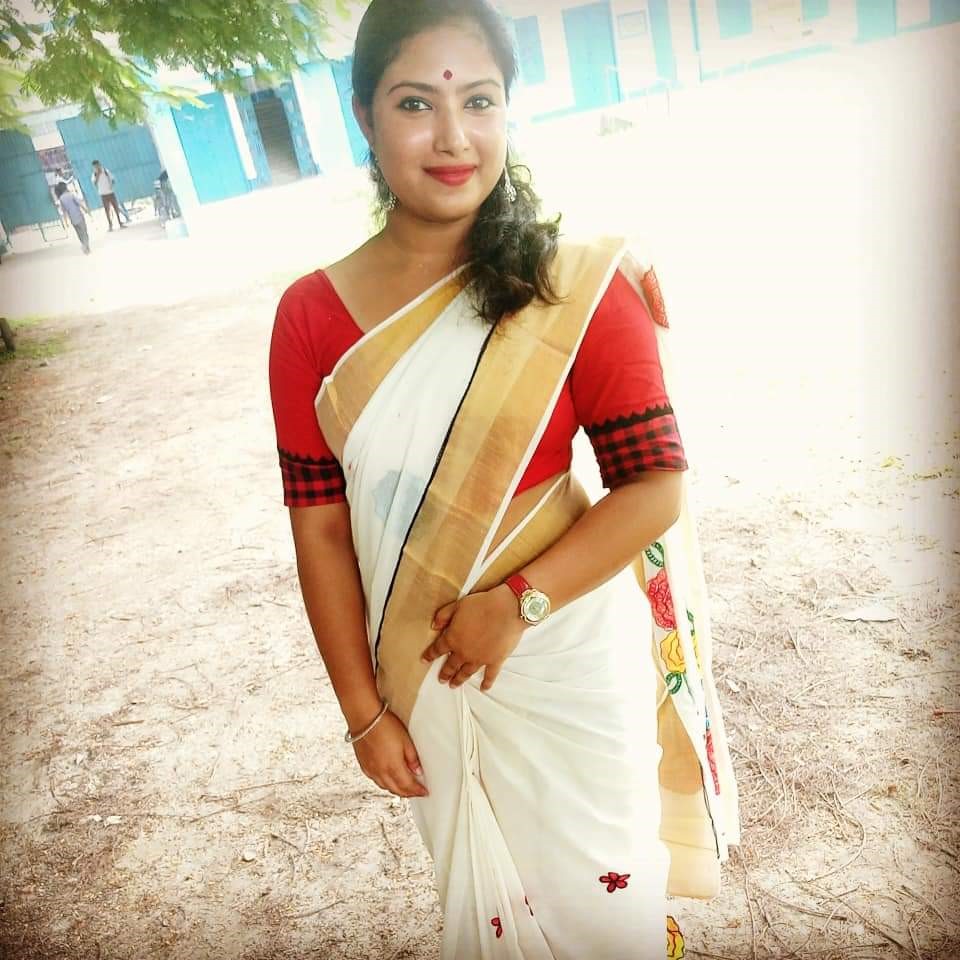dhupgurigirlscollege1@gmail.com
dhupgurigirlscollege1@gmail.com
“The highest education that does not merely give us information but makes our life in harmony with all existence” – Rabindranath Tagore.
Education is a lifelong process. A man of wisdom and knowledge is always placed high in society. Learning is something that is not bound by time, place, or age. If a person intends to learn, then every moment is a learning opportunity. The course not only teaches one to inculcate good teaching skills but also how to work in the administrative aspects of an education system.
The Department of Education comprises three competent faculty members who are highly dedicated to quality education with innovative methods of theory teaching & practices and inspiring & guided field study.
| Vision | Mission |
|---|---|
| The institution has the vision of providing excellent infrastructure with modern facilities and imparting quality education to the students and enabling them to succeed in academic and other professional fields. | Founded in a semi-rural locality, Dhupguri Girls’ College has been persistently following the vision of providing excellent infrastructure and opportunities to the students for fulfilling their academic and co-curricular needs and enabling them to develop their full potentialities. |
| To promote all-round development of an individual. | Create, maintain, and provide for our students a distinctive environment for the promotion of academic excellence, innovative endeavors, and social commitment. |
| To create interest among students in various opportunities for Education as a Major subject in higher education. | Develop human, moral, and cultural values among students. |
| To make the student job-oriented. | Ensure effective pedagogy and efficient methods of evaluation. |
| To make the student a perfect human being (‘Learning to be’). | To inculcate all-round development among students. |
| To make the student serve society. | To encourage self-evaluation. |
| To train the students for job opportunities. |
The Department of Education provides a good quality education for their students. The faculty members of the Education Department emphasize the overall development of students. The faculty members encourage students to do well in the examination.
Insufficient faculty members, lack of adequate books, and lack of e-learning materials in the library.
More special lectures, seminars, educational tours, and workshops.

VISITING LECTURER
View Profile
VISITING LECTURER
View Profile
| Syllabus Name | Link |
|---|---|
| UG_Education 2019 SYLLABUS.pdf | View Document |
| EDUCATION_FYUGP_Syllabus_III & IV Sem_2024-25.pdf | View Document |
| Education FYUGP Syllabus 1st & 2nd Sem.pdf | View Document |
| Programme Outcome | Description |
|---|---|
| PO1 – Disciplinary knowledge | Capable of demonstrating comprehensive knowledge and understanding of one or more disciplines as part of an undergraduate program of study. |
| PO2 – Communication Skills | Ability to express thoughts and ideas effectively in writing and orally; communicate with others using appropriate media, confidently share views, and express oneself clearly. |
| PO3 – Critical Thinking | Capability to apply analytical thought to a body of knowledge; analyze and evaluate evidence, arguments, claims, and beliefs based on empirical evidence. |
| PO4 – Creativity | Think and express ideas in novel or out-of-the-box ways. |
| PO5 – Problem Solving | Capacity to apply learning to solve non-familiar problems, rather than replicate curriculum content; apply learning to real-life situations. |
| PO6 – Analytical Reasoning | Ability to evaluate the reliability of evidence; identify logical flaws in arguments; synthesize data from various sources. |
| PO7 – Research-related Skills | Ability to inquire, synthesize, and articulate relevant questions; plan, execute, and report the results of experiments or investigations. |
| PO8 – Cooperation/Teamwork/Leadership | Ability to work effectively with diverse teams, facilitating cooperative effort. |
| PO9 – Information/Digital Literacy | Capability to use ICT in various learning situations; evaluate and use relevant information sources; apply software for data analysis. |
| PO10 – Moral and Ethical Awareness/Reasoning | Embrace ethical practices in all work; demonstrate the ability to identify ethical issues and adopt truthful actions in all aspects of work. |
| Programme Outcome | Description |
|---|---|
| PO1 – Disciplinary knowledge | Capable of demonstrating comprehensive knowledge and understanding of one or more disciplines for an undergraduate program of study. |
| PO2 – Communication Skills | Ability to express thoughts and ideas effectively in writing and orally; communicate with others using appropriate media, confidently share views, and express oneself clearly. |
| PO3 – Critical Thinking | Capability to apply analytical thought to a body of knowledge; analyze and evaluate evidence, arguments, claims, and beliefs based on empirical evidence. |
| PO4 – Creativity | Think and express ideas in novel or out-of-the-box ways. |
| PO5 – Problem Solving | Capacity to apply learning to solve non-familiar problems, rather than replicate curriculum content; apply learning to real-life situations. |
| PO6 – Analytical Reasoning | Ability to evaluate the reliability of evidence; identify logical flaws in arguments; synthesize data from various sources. |
| PO7 – Research-related Skills | Ability to inquire, synthesize, and articulate relevant questions; plan, execute, and report the results of experiments or investigations. |
| PO8 – Cooperation/Teamwork/Leadership | Ability to work effectively with diverse teams, facilitating cooperative effort. |
| PO9 – Information/Digital Literacy | Capability to use ICT in various learning situations; evaluate and use relevant information sources; apply software for data analysis. |
| PO10 – Moral and Ethical Awareness/Reasoning | Embrace ethical practices in all work; demonstrate the ability to identify ethical issues and adopt truthful actions in all aspects of work. |
| Document Name | Link |
|---|---|
| PARENT-TEACHER MEETING | View Document |
| NOTICE PROG. COURSE.jpg | View Document |
| ORIENTATION PROGRAMME | View Document |
| LIBRARY ORIENTATION PROGRAMME | View Document |
| Document Name | Link |
|---|---|
| Document 1 | View Document |
| Document 2 | View Document |
| Document 3 | View Document |
| Document 4 | View Document |
| SL NO | Description | Link |
|---|---|---|
| 1 | ANSWERS SCRIPTS OF INTERNAL_2020-2023 | View Document |
| 2 | MARKS OF INTERNAL ASSESSMENT_2020-2023 | View Document |
| 3 | NOTICE OF INTERNAL_2020-2023 | View Document |
| 4 | QUESTIONS PAPERS OF INTERNAL_2020-2023 | View Document |
| Sl. No. | Content | Link |
|---|---|---|
| 1 | Spearman’s Two-Factor Theory | Link to PPT |
| 2 | Group Factor Theory | Link to PPT |
| 3 | Kohlberg’s Theory | Link to PPT |
| 4 | I Semester – MAJOR | Link to Course |
| 5 | II Semester – MAJOR | Link to Course |
| 6 | 5th Semester Programme Course | Link to Course |
| 7 | 6th Semester Programme Course | Link to Course |
| 8 | 4th Semester Programme Course | Link to Course |
| Sl. No. | Course Name | Link |
|---|---|---|
| 1 | 2023 BA Prog. Course EDUCATION | View Document |
| 2 | 2022 BA Prog. Course EDUCATION | View Document |
| 3 | 2019 BA Prog. Course EDUCATION | View Document |
| 4 | 2020 BA Prog. Course EDUCATION | View Document |
| 5 | 2021 BA Prog. Course EDUCATION | View Document |
| Document Name | Link |
|---|---|
| Programe Course Result_2019-20 | View Document |
| Know Your Strength Result | View Document |
| Know Your strength Score Card | View Document |
| Content | Link |
|---|---|
| 2023- STUDENTS LIST I SEMESTER | View Document |
| SL NO | Description | Link |
|---|---|---|
| 1 | Routine | View Document |
| Student List | Link |
|---|---|
| 2023- STUDENTS LIST I SEMESTER | View Document |
| 2022-STUDENTS LIST I,II,III,IV,V,VI SEMESTER | View Document |
| 2021-STUDENTS LIST I, III AND V SEMESTER | View Document |
| 2020 STUDENTS LIST 2ND AND 3RD | View Document |
| 2020-STUDENTS LIST_II AND III SEMESTER | View Document |
| SL NO | Description | Link |
|---|---|---|
| 1 | LIBRARY ORIENTATION PROG 2023 | View Document |
| 2 | ORIENTATION PROGRAM 2023 | View Document |
| 3 | POSTER PRESENTATIONOF ANTI- RAGGING_2022 | View Document |
| 4 | SPECIAL LECTURE_2021 | View Document |
| 5 | SPECIAL LECTURE_2024 | View Document |
| Document Name | Link |
|---|---|
| MENTOR-MENTEE_REPORT | View Document |
| MENTOR MENTEE REPPORT 2023 | View Document |
| Document Name | Link |
|---|---|
| Students Feedback_2nd Sem_2024 | View Document |
| Feedback questions_2023 | View Document |
| Document Name | Link |
|---|---|
| MAJOR STUDENTS FEEDBACK ANALYSIS | View Document |
| DEPARTMENT OF EDUCATION PROGRAMME FEEDBACK | View Document |
| Content | Link |
|---|---|
| Add-on Course ‘YOGA’ | View Document |
| Headline | Details |
|---|---|
| Curriculum Enhancements | Continuously update the curriculum to reflect the latest developments and trends in education. Incorporate interdisciplinary approaches to connect Education with other relevant disciplines like Philosophy, Sociology, and Mathematics. |
| Emphasis on Project-Based Learning, Practical Training, and Internships | To bridge the gap between theory and practice, we will encourage project-based learning, practical training, and internships. This approach will help our students apply their theoretical knowledge in real-life scenarios. |
| Student Participation in Extracurricular Activities, Clubs, and Societies | We believe in the importance of holistic development and the nurturing of well-rounded individuals. Therefore, we will actively encourage our students to participate in extracurricular activities, clubs, and societies. |
| Faculty Development | Encourage faculty members to attend workshops, seminars, and conferences to stay updated with the latest research and teaching methodologies. Facilitate opportunities for faculty to engage in research collaboration with other institutions and industries. |
| Research and Publication | Promote research activities within the department and encourage faculty and students to publish their research findings in reputed journals. Increase the number of books, research journals, and e-library resources. |
| Community Outreach | Engage in community outreach programs to create awareness about educational issues and contribute to social development. Collaborate with local government and organizations to offer expertise and solutions for regional challenges. |
| Skill Development | Incorporate skill development programs to equip students with critical and problem-solving abilities. Encourage students to participate in national and international competitions related to the education field. |
| Alumni Engagement | Establish an alumni network to maintain strong connections with current students and leverage their experiences and expertise for the department’s betterment. Organize alumni gatherings and events to foster a sense of belonging and pride among graduates. |
| Outreach to Schools | Engage with local schools to promote Education as a subject and create interest among students in the importance of education. |